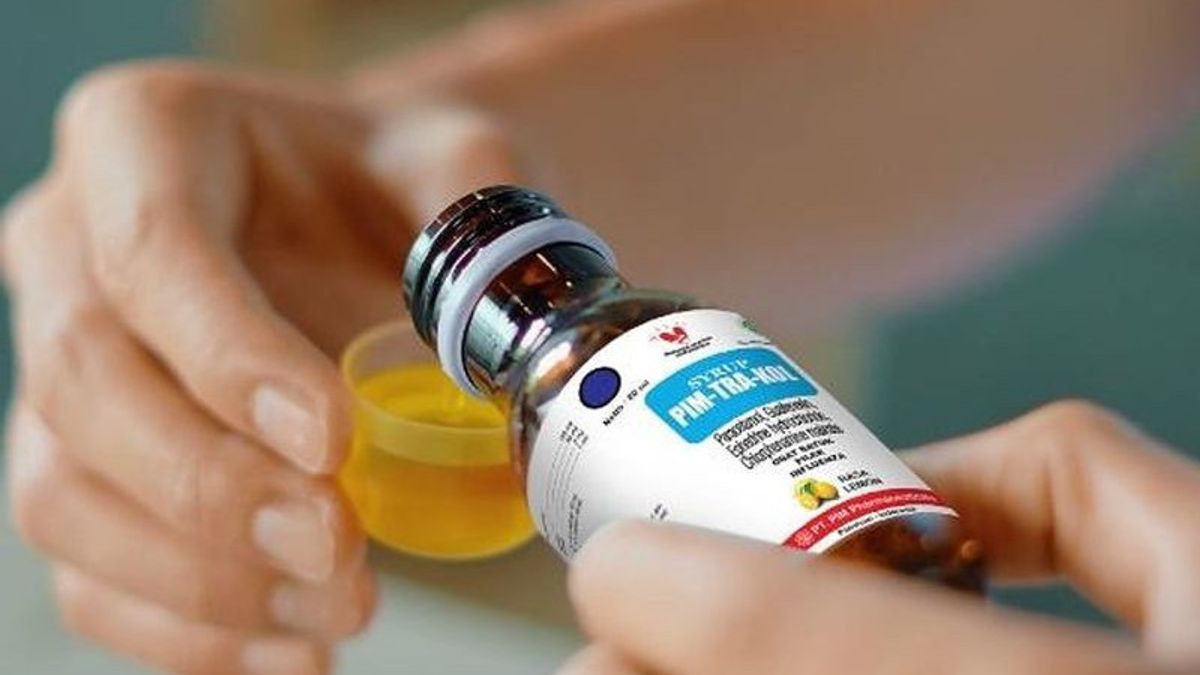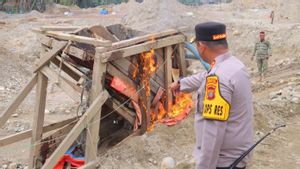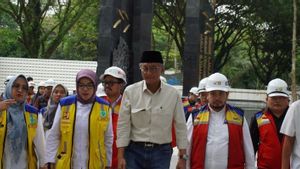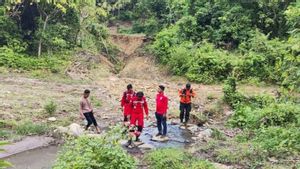JAKARTA - An epidemiologist from Griffith University Australia, Dicky Budiman, said that it was time for the government to settle the status of an Extraordinary Incident (KLB) in the acute kidney failure disease that hit Indonesia.
Referring to the Regulation of the Minister of Health (Permenkes) Number 1501 of 2010, the KLB status is determined when it arises or increases in pain and/or deaths within a certain period of time that can lead to an outbreak.
"Why should it be determined as a KLB, because the criteria are met. The basic understanding of the KLB is that there is an unusual incident. This (acute kidneygal) is unusual because of death in a relatively similar period and has never happened before. This is included in the KLB category," said Dicky to VOI, Friday, October 21.
According to Dicky, the status of KLB as the handling of cases of acute kidney failure is important. Because, when a serious disease is designated as a KLB, the mobilization of resources to coordination is more fulfilled by one regulation.
Thus, the conditions of financial limitations, human resources, and the technology needed in handling cases in an area can be helped.
"Although the government will not be pleasant on the side of the government, showing one incident, for example, drugs in Indonesia are polluted or weaknesses in the aspect of supervision, so what can be done. That's a fact," said Dicky.
"To correct and redeem it, it is none other than preventing this case from developing and taking more victims by determining the KLB status," he continued.
As is known, the mysterious acute kidney failure or attypical progressive acute childney injury (AKI) is a condition when the kidneys suddenly cannot filter waste from the blood and without knowing the cause.
Early symptoms of mysterious acute kidney disorders include fever, diarrhea or vomiting, and cough-silence. The follow-up symptoms are the decreased amount of urine and frequency of BAK, swelling body, decreased consciousness, and shortness of breath.
The Ministry of Health has examined that toddlers affected by mysterious acute kidney failure were detected as having 3 dangerous chemicals, namely ethylene glycol-EG, diethylene glycol-DEG, and ethylene glycol butyl ether-EGBE.
These three chemicals are impurities of non-dangerous chemicals, polyethylene glycol, which is often used as solublicity noise in many mild drugs.
Several types of Syrup drugs used by patients under five who were affected by MMR (we took from the patient's house), were proven to have EG, DEG, EGBE, which should not have had a / very few levels in the Gunadi Sadikin medicine. Thus, Health Minister Budi Gunadi Sadikin issued a decision prohibiting the use of medial drugs.
"While waiting for the drug authority or BPOM to finalize the results of their quantitative research, the Ministry of Health is taking a conservative position while banning the use of mild drugs. Considering that the toddler identified by AKI has reached 70s per month," said Health Minister Budi Gunadi Sadikin in his statement.
The English, Chinese, Japanese, Arabic, and French versions are automatically generated by the AI. So there may still be inaccuracies in translating, please always see Indonesian as our main language. (system supported by DigitalSiber.id)
Most Popular Tags
#Palestine #Hasto Kristiyanto #free nutritious food #patrick kluivert #tangerang sea fencePopular
18 Januari 2025, 00:16













